Last Updated: February 25, 2022
In late 2021, Costa Rica announced a program to start requiring proof of Covid vaccination to enter non-essential businesses. In this post, we will explain the details of Costa Rica’s vaccine passport. We’ll cover the timing, which businesses apply, how tourists are affected, and what kind of proof will be needed.
IMPORTANT UPDATES – QR Code Program Not Moving Forward
February 23, 2022: The Costa Rican government has announced that starting on April 1, businesses will not be required to ask customers for proof of vaccination to enter and can all operate at full capacity. Previously, nonessential businesses had to operate at 50% capacity if they didn’t require vaccination. For now, the government is abandoning this plan and businesses will not be required to ask for proof of vaccination. It is not clear whether some businesses will choose to continue to request proof of vaccination after April 1st. We are following up with some hotels that have been asking for it and will update this post if we learn more. Note that very few businesses have been asking for proof anyway, so this is not a big issue for most visitors.
The QR code program will still be in effect for the month of March, until the new rules start on April 1. See full details of the program below.
February 8, 2022: On February 8, Costa Rica’s Constitutional Court ruled on pending litigation about the QR code program. It held that private businesses have the power to request a QR vaccination code from people who wish to enter. It found that this does not constitute a discriminatory, unfounded, or unreasonable measure. The Court also noted that the program is voluntary now, in that businesses do not have to require a QR code.
It is our understanding that there is still another court case pending about the QR code.
November 2021: As a result of litigation filed by the tourism industry and others, the government’s plan to implement the QR code vaccine requirement has been put on hold. On November 12, a court in Costa Rica issued a preliminary injunction. This means that the court still needs to hear the merits of the case, where the government will need to show that it is necessary/effective to implement the QR code scheme.
For now, the President’s office announced that starting on December 1, businesses have a choice. They can require proof of vaccination (via a QR code or vaccination card) and operate at 100% capacity, or remain at 50% capacity without requiring proof of vaccination. This will continue until at least March 7, 2022. [Note: Previously, the date was February 7. On January 21, the government announced that the voluntary program would be extended by one month, until March 7.]
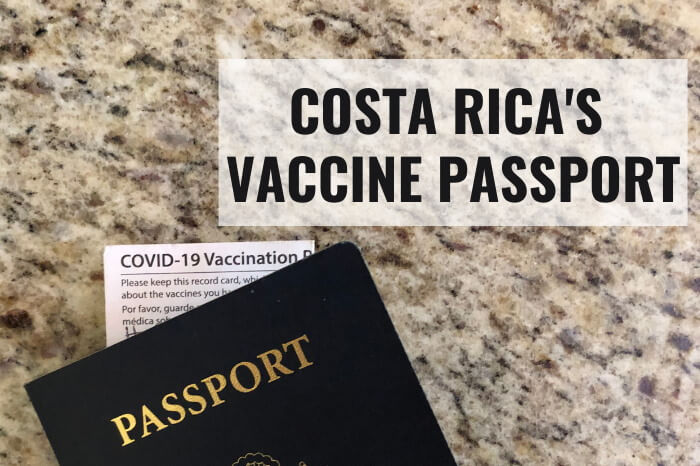
Background and Timing
In October 2021, the Costa Rica government announced that it would start requiring full Covid vaccination to enter non-essential businesses. Originally, the mandate was to start on December 1, 2021. However, after getting pushback from the tourism sector, the government agreed to make the requirement more gradual.
Now there is a transition period.
Transition Period: December 1-March 30
Specifically, from December 1- March 30, a business on the list can choose to operate at 100% capacity and require full vaccination to enter. Or they can operate at 50% capacity and not require vaccination. Businesses included are hotels, restaurants, and stores (see full list below).
This means that for the businesses that decide to operate at full capacity, you will have to show proof of vaccination to enter starting in December.
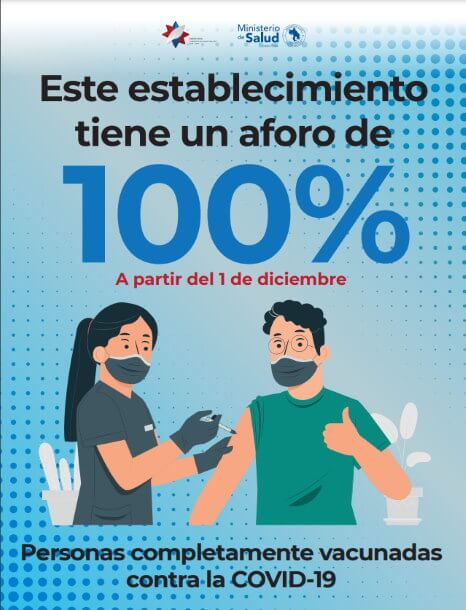
So far, we have heard of a few hotels adopting the 100% capacity mode. This means you will have to be fully vaccinated to enter. Almost all restaurants and stores have chosen not to require proof of vaccination and have limited 50% capacity.
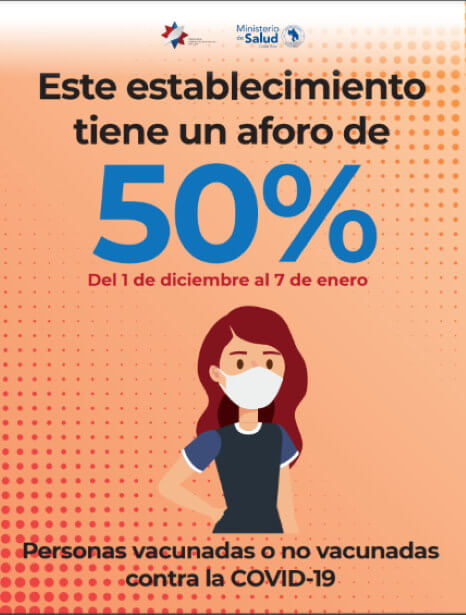
If you are not vaccinated and traveling during this transition period (December 1-March 30), contact your hotels to find out their policy.
IMPORTANT: The vaccine mandate currently only applies to people ages 12 and up. Children under 12 are currently exempt. There is also a medical exemption (see below).
Children
As we stated above, the vaccine mandate applies only to people ages 12 and up. Minors ages 11 and under are currently exempt.
Businesses on the List
Basically, the vaccine mandate applies to non-essential businesses. Adventure tourism is also included. Here is the full list:
- Restaurants, cafeterias, food courts, and food trucks
- Bars and casinos
- General stores, department stores, and shopping malls
- Museums
- Fitness centers
- Hotels, cabins, or lodging establishments*
*Most people are including Airbnbs and vacation rentals in this category; however, we have not seen anything official from the government.
- Spas
- Activities, organizations, or congregations in places of worship with more than 750 people
- Event rooms for business, academic, or social activities
- Adventure tourism (see detailed list in section below)
- Theaters, cinemas, art and dance academies, and establishments for artistic activities
- Sports facilities
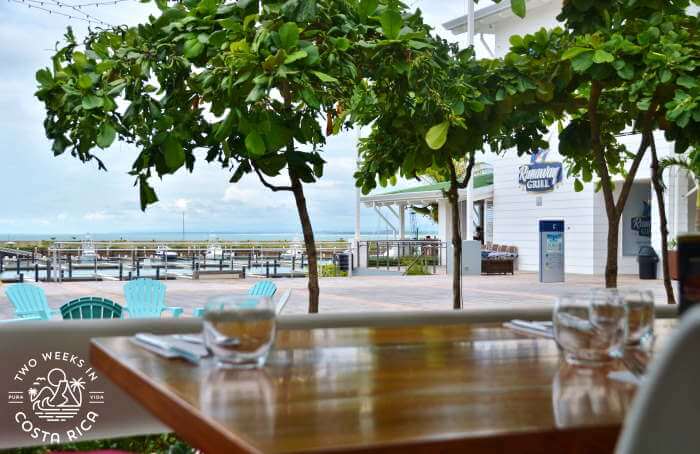
Businesses Not on the List
Essential services like grocery stores, pharmacies, hospitals, bakeries, butcher shops, hardware stores, etc. are exempt from the vaccination requirement. But they must remain at 50% capacity. However, these businesses can choose to require proof of vaccination and operate at 100% capacity.
Showing Proof of Vaccination
Businesses will verify vaccination status using QR codes or vaccination cards.
Costa Rican citizens and residents will request a QR code from the government.
Tourists visiting the country will get a QR code as part of the Health Pass.
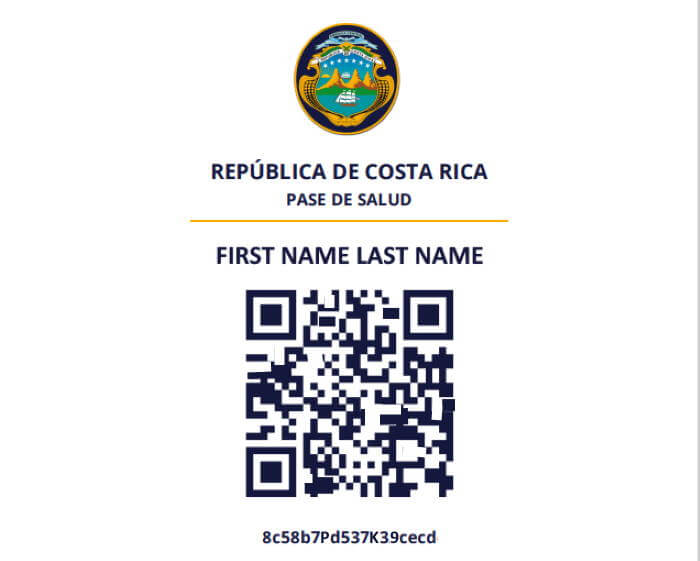
The Health Pass is the online form that you already have to fill out to enter the country. Here, you will upload your vaccination card or certificate and get a specific QR code to show to enter businesses.
Tourists may also show their foreign vaccination card.
All documents submitted to the Health Pass must be in English or Spanish.
What Does Fully Vaccinated Mean in Costa Rica?
Overview
Fully vaccinated in Costa Rica means that you (1) have been vaccinated using an approved vaccine, and (2) you have received the total number of doses recommended by the pharmaceutical company. Booster shots are not required.
The final dose has to have been applied at least 14 days before entry.
Here is the list of approved vaccines:
- AstraZeneca: 2-dose series
- Pfizer-BioNTech: 2-dose series
- Moderna: 2-dose series
- Johnson & Johnson: single dose
- Sinovac-CoronaVac: 2-dose series
- Sinopharm: 2-dose series
- Covaxin: 2-dose series
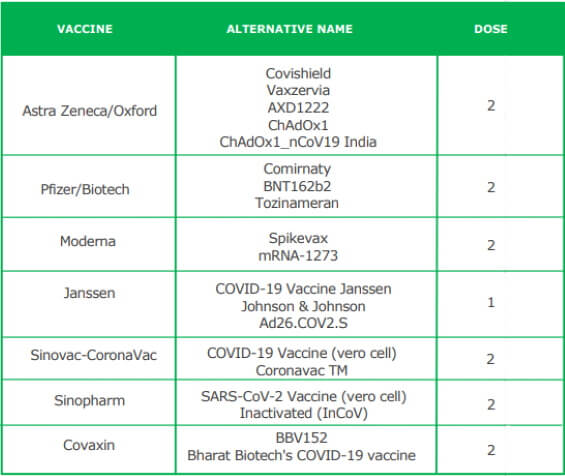
Mixed Vaccines
If you have been vaccinated using two different vaccine brands (e.g., AstraZeneca for first dose and Moderna for second dose), the Costa Rica Tourism Board (ICT) has said that this will be considered a complete vaccination as long as the vaccines are both approved. This is explained in the instructions for the Health Pass.
Medical Exemption
The Costa Rica Tourism Board has said that the vaccination requirement does not apply to tourists with a duly accredited medical condition that makes it not possible to be vaccinated. See the FAQs document on their website.
A person with a medical exemption should attach their medical report (in English or Spanish) to the online Health Pass. Then the Tourism Board would review it, confirm that they are exempt for medical reasons, and issue a QR code.
Unvaccinated Tourists
Regarding unvaccinated tourists, the Costa Rica Tourism Board has said tourists who are not fully vaccinated will be able to enter the country. If they are over 18 years of age, they must purchase Covid travel insurance that covers their trip duration (must be at least five days). However, they will not be able to enter businesses that require full vaccination.
For more information on the required Covid travel insurance, see our post, Costa Rica’s Required Travel Insurance: 15 FAQs.
Using a Negative Covid Test Instead of Proof of Vaccination
The government has said that only proof of vaccination via a QR code or vaccination card will be acceptable. You will not be able to show proof of a recent negative Covid test to enter businesses.
Fully Recovered Travelers
The Tourism Board has said that tourists who have recovered from Covid may meet the requirements. They say that each country has its own mechanism to verify vaccination status, and that tourists must present evidence via the Health Pass.
This includes recovered travelers whose health authority has applied a single dose of a Covid vaccine. See the Tourism Board’s FAQs document, #23, for more information.
Which Adventure Tourist Activities are Included?
Here is the list of adventure tourism activities that will have to require proof of vaccination if the program becomes mandatory:
- Terrestrial activities such as hiking, mountain biking, trekking, and horseback riding.
- In-air activities such as ballooning (hot air balloons) and paragliding.
- Aquatic activities such as rafting, scuba diving, tubing, kayaking, and parasailing.
- Activities with cables and ropes such as climbing, bungee jumping, rappelling, zip-lining, canyoning, via ferrata, spelunking (caving), high ropes, and pendulum (Tarzan swing).
- Motorized activities such as ATV, motorcycles, boats, and jet-skis.
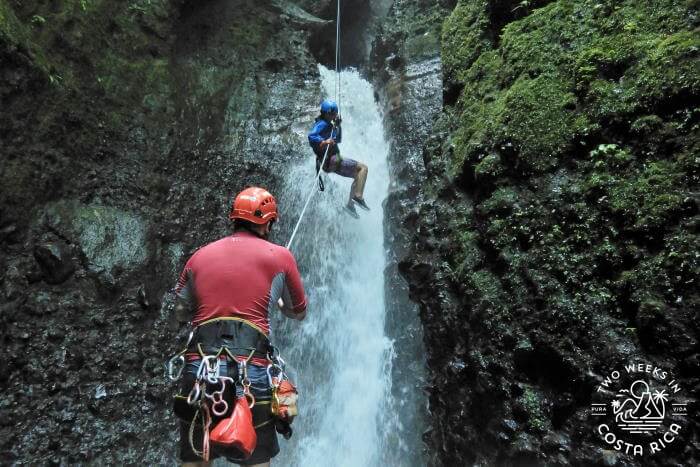
Updating Information
This issue has been evolving since it was first announced in October. We will continue to follow this issue and the ongoing litigation, and update our article as needed. For the most current information, feel free to follow us on Facebook. We often provide quick updates on there.
Have a question about Costa Rica’s new vaccine passport/vaccination requirements? Ask us below.
IMPORTANT: No personal attacks. While we welcome a constructive debate about the QR code program, we will not allow comments that are personal attacks. No name calling or bullying. We try to keep this website positive and pura vida. Please speak to each other with respect.
Looking for more information to plan your trip? Check out these posts:
Traveling to Costa Rica During Covid-19: Entry Requirements, Protocols & What to Expect – Learn more about the online Health Pass and what to expect regarding masks and protocols at hotels and other businesses.
Covid Vaccination Rates in Costa Rica: See how Costa Rica is doing with its vaccination campaign.
Where to Get a Covid-19 Test: The United States and many other countries are still requiring a negative Covid test to get back home. Check out our list of where to get tested.
